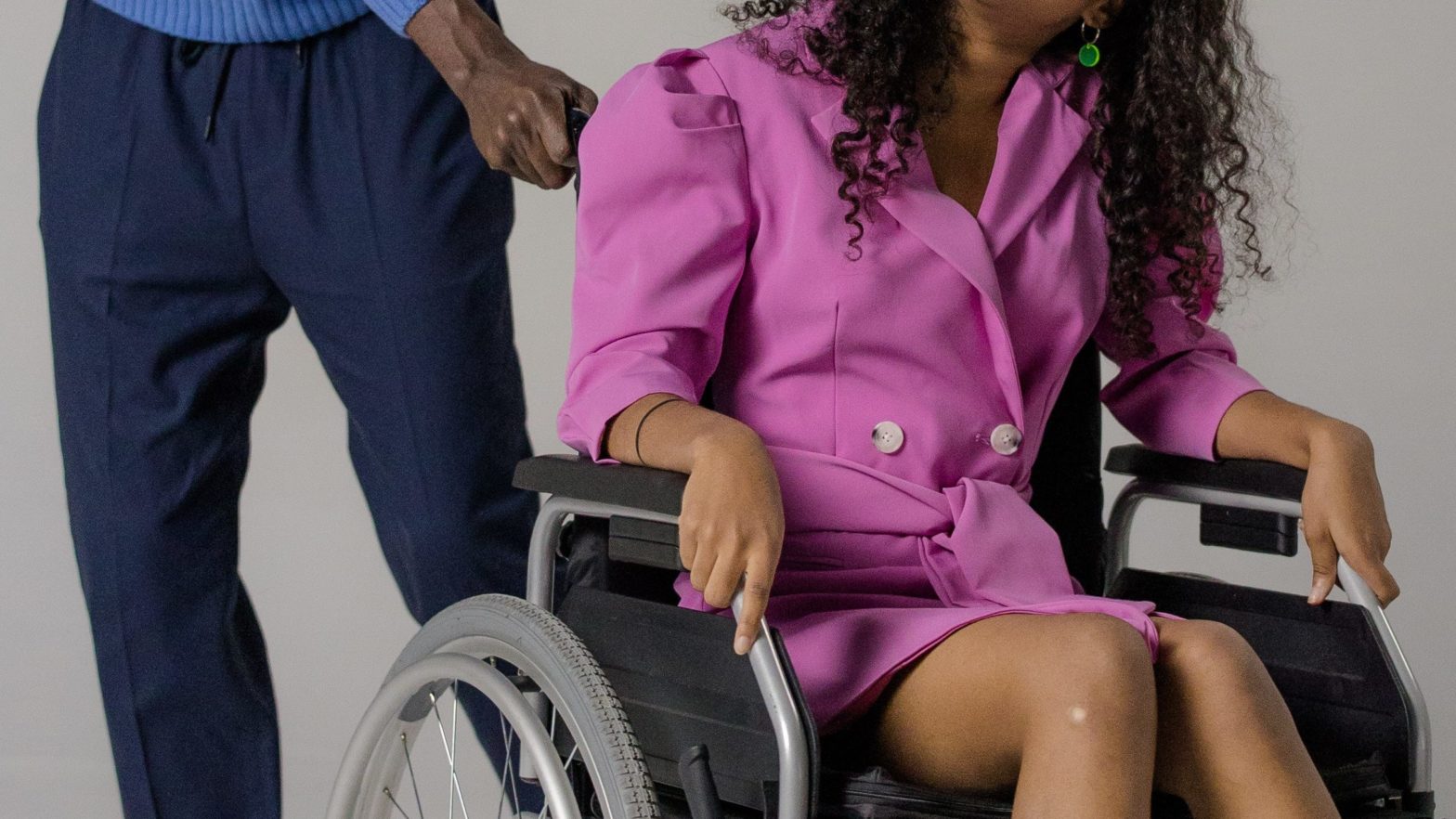Last week, Andraéa LaVant, a disability advocate and Impact Producer for Netflix’s Crip Camp, took to Twitter to share an incident that she experienced while flying with American Airlines.
LaVant, who is mobility impaired and depends on a wheelchair to get around, was traveling on August 2 when she says was “forced” by American Airlines to deplane without her chair.
“Counting the minutes @AmericanAir has me sitting in this aisle chair cuz they forced me to get off the plane without bringing my wheelchair,” she tweeted. “No chair in sight and I can feel my body rejecting this trash chair. #FlyingWhileDisabled.”
LaVant also shared a photo sitting in the aisle seat with seatbelts strapped across her chest.
An hour and twenty minutes later, LaVant sent a follow-up tweet that read, “Finally got my chair but what we dealt with was ridiculous. The fact this remains a life or death issue…smh.”
This isn't an isolated occurrence
This incident comes a few weeks after another American Airlines traveler accused the airline of destroying his expensive electric wheelchair and severely damaging his replacement chair less than three weeks later.
On July 9, John Morris’s electric wheelchair was dropped by American Airlines staff while being loaded onto a flight. Insider reported, “Its frame, which had already sustained damage on a previous American flight, was bent, the wheel was broken, and it was no longer turning on.” He was forced to delay his trip while he found a replacement chair.
The airline supplied Morris with two loaner chairs. One Morris described as “not designed for a full-time wheelchair user,” the other he says was “probably a decade old and lacking any of the features that I require to prevent issues related to pressure on my body.”
Morris flew to Florida to buy another chair and on the way back, once again his replacement was damaged.
The cost of his original wheelchair was $40K and his replacement $35K. Morris was heartbroken when he told Insider, “The burden placed on the disabled person with the destruction of their chair can last for months or longer – it is truly immeasurable.”
Making traveling easier for those with disabilities
Both of these incidents occurred around the same time that The US Department of Transportation released a bill of rights for airline passengers living with disabilities. This is part of an effort to make air travel as comfortable as possible and help counter what some have called “the summer of travel hell.” As protocol, no passage with a wheelchair should be made to deplane until their wheelchair is at the gate to meet them.
American Airlines statement regarding Andraéa LaVant's incident:
In a statement to Travel Noire, American Airlines says:
“We strive to provide a safe and enjoyable experience for all customers and recognize how important it is to support the independence of customers with disabilities throughout their travels. After arrival at Philadelphia International Airport (PHL) on Aug. 2, our team was delayed in reuniting a customer traveling on American Airlines Flight 1799 with her assistive device. Our team has reached out to apologize and learn more about her recent experience.”
AA also shared, “Based on gate footage, the customer was the last to deplane the aircraft—in alignment with protocol. A wheelchair service agent transported the customer from the aircraft to the top of the jet bridge in an aisle chair. The wheelchair service agent and a member of our Customer Care team waited with the customer for approximately 13 minutes before their personal wheelchair was delivered from the ramp via elevator to the customer in-terminal.”
To date, American Airlines says they have not received a response to their outreach. They’ve expressed being committed to improving the travel experience for customers with disabilities and look forward to learning more.
